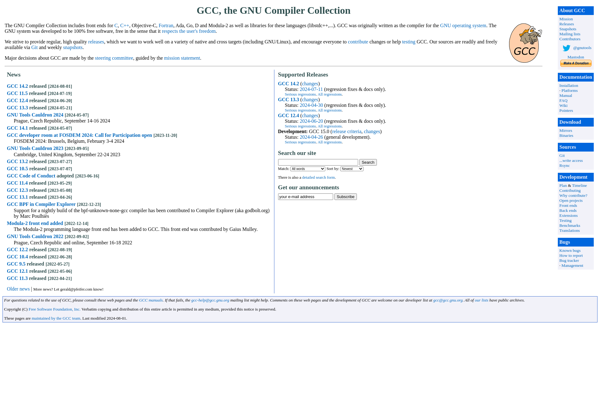Portable C Compiler

Portable C Compiler: Open-Source C Compiler for Portable Development
The Portable C Compiler (PCC) is an open-source, retargetable C compiler. It supports multiple hardware and software platforms and aims to be simple, portable, fast with light resource usage.
What is Portable C Compiler?
The Portable C Compiler (PCC) is a free, open-source and retargetable C compiler focused on providing portability, simplicity, speed, and small size. Developed originally at Bell Labs in the 1970s, PCC has evolved over decades of work by various contributors into a mature C codebase.
Some key features and goals of PCC include:
- Supports wide range of hardware platforms including x86, ARM, PowerPC, SPARC, MIPS, and more
- Supports various Unix-like systems such as Linux, BSDs, Solaris, macOS, etc.
- ANSI C89/90 and parts of C99 compliance; continuing work on improving standards conformance
- Generates code quickly with relatively low memory footprint compared to GCC
- Emphasizes simplicity, portability and performance rather than extensive optimization
- Clean and modular codebase for easy understanding and porting
While not focused on state-of-the-art optimization and language features like GCC, PCC distinguishes itself as a simple, portable and efficient baseline C compiler. Its small code size makes it well-suited for embedded systems and other resource constrained platforms. For developers needing cross-platform C compilation, PCC presents a lightweight, anachronistic yet enduring solution.
Portable C Compiler Features
Features
- Open source C compiler
- Supports multiple hardware and software platforms
- Portable across many operating systems
- Fast compilation speed
- Light resource usage
- Produces optimized code
- Supports most ANSI C features
Pricing
- Open Source
Pros
Cons
Official Links
Reviews & Ratings
Login to ReviewThe Best Portable C Compiler Alternatives
Top Development and Compilers and other similar apps like Portable C Compiler
Here are some alternatives to Portable C Compiler:
Suggest an alternative ❐GNU Compiler Collection

LLVM

Open64
